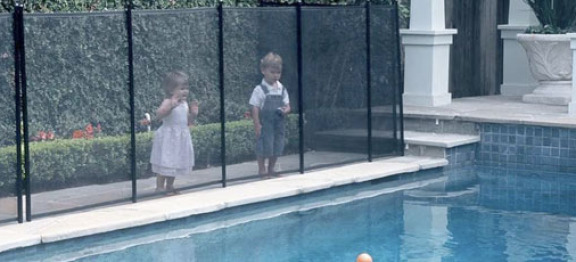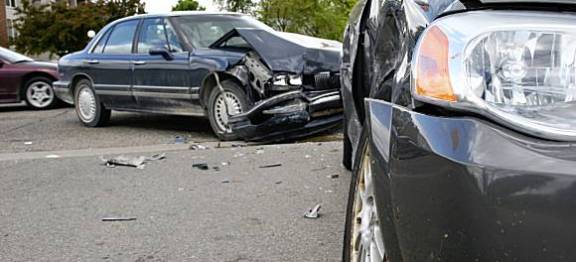JONES LAW GROUPYour Lawyers for Life! Personal Injury Law Firm in St. Petersburg

Florida has nearly twice the amount of coastline as any other state in the continental U.S.[1] Pinellas County, alone, has 35 miles of beaches and many miles more of coastline. Additionally, pools are a very common feature of homes in St. Petersburg, Clearwater and Tampa. All of these things sound wonderful, but it also makes […]
Call our personal injury law office directly at (727) 512-9847
At Jones Law Group in St. Petersburg, FL, we would like to hear from you. Contact us for a free personal injury case consultation.
Call our personal injury law office at (727) 512-9847
Get educated on the Florida's personal injury laws and more.
Florida has nearly twice the amount of coastline as any other state in the continental U.S.[1] Pinellas County, alone, has 35 miles of beaches and many miles more of coastline. Additionally, pools are a very common feature of homes in St. Petersburg, Clearwater and Tampa. All of these things sound wonderful, but it also makes it easy for Florida to lead the United States in unintentional drownings each year.[2] Many of these tragedies can be avoided through education.
Who is Most at Risk
Children, aged 1 through 4, are most at risk to accidentally drown. In fact, drowning is the number 2 cause of death for children in this age range. Congenital birth defects are the number 1 cause of death of children, aged 1 through 4. Children up to the age of 14 make up the second largest group of accidental drownings.
Perhaps even more frightening is that for every child who dies from drowning there are 5 more that require emergency care for non-fatal submersion injuries. Non-fatal submersion injuries can cause permanent brain damage. Even more children suffer other injuries that occur in and around the pool, such as cuts, lacerations, broken bones, damaged teeth, and neck and spinal injuries.
How to Avoid Swimming Related Injuries
At the beach most accidental injuries occur because the victim is not a strong swimmer or gets caught in a rip current. A rip current is narrow, but powerful channel of water that moves away from the beach at speeds of up to 8 feet per second. This current is moving away from the beach at speeds faster than an Olympic swimmer. Rip currents are dangerous because people get caught in the current and pushed further away from the beach. The people then panic and attempt to swim straight through the current which is impossible. If caught in a rip current, the best approach is to swim parallel to the beach until you are out of the current then swim diagonally to shore.
The best way to avoid accidental drowning deaths is make sure your children are strong swimmers. St. Petersburg offers swimming lessons for children beginning at the age of 6 months through adulthood.[3] The swim lessons are reasonably priced and tiered, depending on ability. Clearwater[4] and Seminole[5] offer similar programs. Even though swim programs are offered to children beginning at 6 months that children up until the age of 4 are not ready to swim without an adult within arms reach.
How to Make Your Pool Safe
Pool ownership is wonderful and will provide you hours of entertainment. It will also bring friends that you never knew you had prior to owning a pool. It is important to remember that you may ultimately be responsible for any injuries that occur at your pool. Therefore, you have legal obligations that accompany pool ownership. Florida Statute 515.27 requires that every pool must have ONE of following safety features:
1. The pool must be isolated from the home with barrier that is at least 4 feet high;
2. The pool must be equipped with an approved safety pool cover;
3. All doors or windows providing direct access to the pool must have an EXIT alarm; or
4. All doors from the home which provide direct access to the pool must have a self-latching with the release mechanism placed at least 54 inches from the floor.
In my opinion, these are the minimum standards to which you must comply. I would recommend a combination of one or more of these requirements and I would suggest that pool fence be higher than 4 feet. Remember, you must consider your pool as a danger to uninvited neighborhood children. As the pool owner, you may be liable if someone sneaks onto your property and drowns in the pool. It is, therefore, important to think of your safety plan from that perspective, as well.
Follow Safety Rules When Using the Pool
Remember, you are responsible for the safety of the children and guests that use your pool. It is important to have clearly articulated rules that are followed at all times. These rules should include:
1. No running around the pool;
2. No horseplay around the pool;
3. No diving in the shallow end:
4. No diving off the sides;
5. Organized games are fun. Roughhousing in the pool will lead to injuries; and
6. Always have an adult who is trained in CPR monitoring the pool activities.
Contact Jones Law Group
Have you or a loved one been drowned or been injured in a pool accident? Contact an experienced St. Petersburg personal injury attorney at The Law Offices of Bobby Jones today. When you contact our office we will immediately set an appointment where you will meet your attorney and be provided with his/her personal contact information. If you do not have transportation or you cannot drive, your attorney will travel to meet you and discuss your case with you.
If you or your child has been injured in a pool accident which you feel was avoidable, should immediately call an experienced personal injury attorney in St. Petersburg at Jones Law Group at (727) 571-1333 during regular business hours or (727) 753-8657 on weekends or after regular business hours. We will evaluate your case for free and you will never pay us a dime unless we recover compensation for your injuries.
Jones Law Group
5622 Central Avenue
St. Pete, FL 33707
References:
[1] http://en.wikipedia.org/wiki/List_of_U.S._states_by_coastline
[2] http://www.cdc.gov/HomeandRecreationalSafety/Water-Safety/waterinjuries-factsheet.html
[3] http://www.stpeteparksrec.org/swim-lessons.html
[4] http://www.clearwater-fl.com/gov/depts/parksrec/facilities/lc.asp

There is a lot of misinformation regarding Florida’s insurance requirements for motorcycles. Is it required? Do you get PIP benefits? How much should insurance should you carry? Are the aftermarket modifications to your motorcycle covered? Should I get uninsured/underinsured motorist coverage? I will address each of these issues in this article. Do You Need Insurance […]

Collectively, semi-trucks travel about 140 billion miles per year delivering goods in the United States. One-third of all U.S. semi trucks are registered in Florida, Texas and California. Obviously, semi trucks are a necessary component of the economy, but when trucks are involved in accidents the results can be catastrophic. It is always important to […]

In my opinion, the practice of law is a very personal business. The practice of law within the area of personal injury is even more so, but all too often I hear horror stories from people I meet or who come to see me after they have hired another attorney. The stories you hear are […]

By: Heath C. Murphy + – Personal Injury This is the final part in my Personal Injury Medical Terms Glossary. I hope that those of you that have taken the time to read this have found it helpful. If anyone has suggestions for words which I have omitted, please send me an Email. Hypoxic Brain […]

As much as we hate to admit it, Florida is a state that is notorious for having bad drivers. When you factor in senseless behavior such as road rage, this can create a volatile mix that’s a recipe for catastrophic injuries. Many times, reckless driving or road rage can lead to tragic fatalities. Why does […]

Mechanical failures due to poor maintenance, unstable or unsecured loads, truck driver fatigue, reckless driving practices, and other forms of negligence contribute to the 8 types of truck accidents. Summary The types of injury that a victim suffers will often depend on the type of truck accidents they’re in. There are actually several different ways […]
Speak with us before time runs out! In Florida, you have a limited window to file a personal injury case, so speak to an Attorney today.
Call our personal injury law office directly at (727) 512-9847
Jones Law Group is a dedicated personal injury lawyer in St. Petersburg, FL, serving the Tampa Bay area since 2006. Our experienced attorneys specialize in car accidents, slip and fall cases, employment law disputes, construction law issues, and overtime wage claims, fighting for maximum compensation on a contingency fee basis. Contact us for a free consultation to discuss your case.
Call our personal injury law office at (727) 512-9847
© Copyright 2006–2025 Jones Law Group Attorneys at Law. All rights reserved. Privacy Policy Terms of Use
Attorney Advertising.
The information on this website is for general information purposes only. Nothing on this site should be taken as legal advice for any individual case or situation. This information is not intended to create, and receipt or viewing does not constitute, an attorney-client relationship. Past results do not guarantee similar outcomes.
Are you injured or wronged and interested in a consultation? Fill out the form for a free consultation with us.